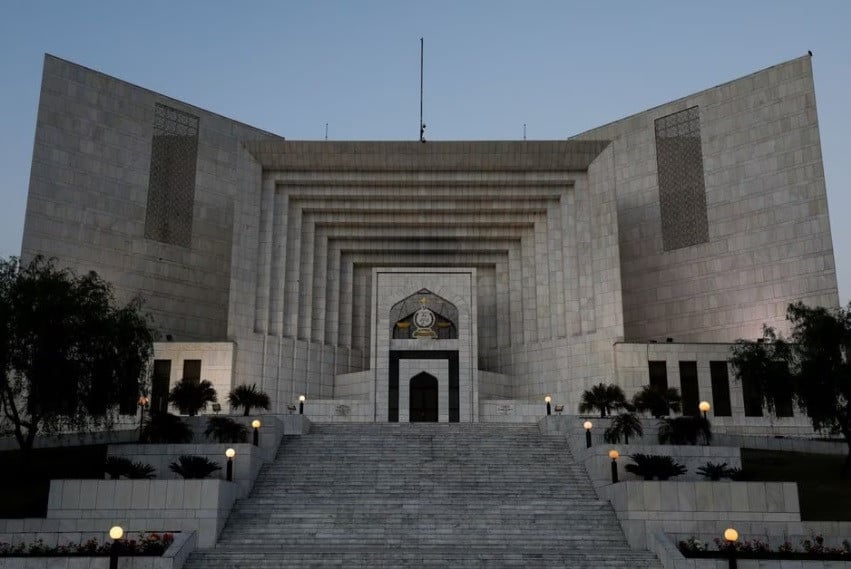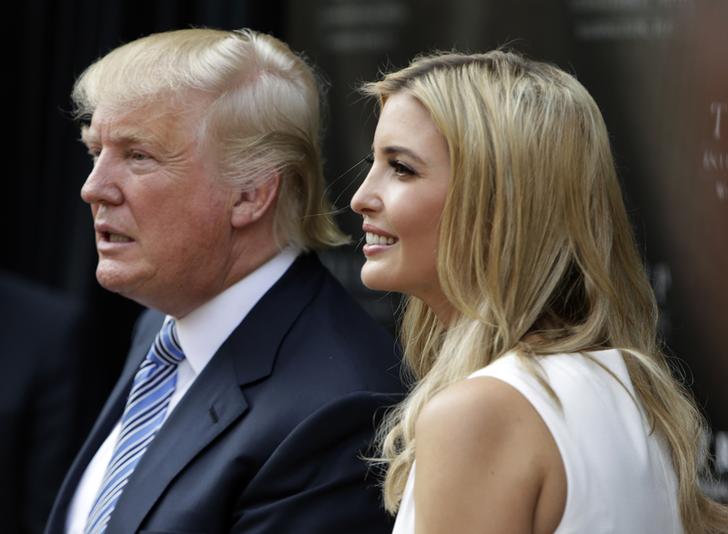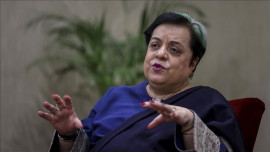
The Pakistan Tehreek-e-Insaf (PTI) moved the Supreme Court (SC) on Monday against the incumbent government’s formation of a judicial commission to probe the recent audio leaks.
According to an earlier notification issued by the Cabinet Division, a three-man judicial commission led by apex court's senior puisne judge Justice Qazi Faez Isa and comprising Balochistan High Court Chief Justice Naeem Akhtar Afghan and Islamabad High Court Chief Justice Aamer Farooq.
The commission would probe leaked audio clips allegedly involving some current and former members of the superior judiciary and their family members to determine their “veracity” and “impact on the independence of the judiciary”.
The constitutional petition, filed by PTI chief Imran Khan with the Federation of Pakistan and the Ministry of Interior as respondents, questioned if the federal government could select a judge of a superior court “on its own, to sit in any judicial commission” without the “prior sanction and approval of the chief justice”.
It further questioned what the effect of the formation of the commission by the federal government was, “without taking into consideration of the provision of Article 175(3) as well as the judgment delivered in Sharaf Faridi and others, where under the judiciary stands separated from the Executive for all purposes and intents”.
The petition asked if the commission could go into the details “of an alleged telephone taping” after the top court, in a case regarding former prime minister Benazir Bhutto, declared telephone tapping “against the fundamental rights”.
Read Imran demands commission to probe ‘powerful elements’ behind audio leaks
“Whereas under the Supreme Court judgment, the only thing left for determination is, that under what authority of law a telephone conversation of a judge of a superior court, a prime minister or their families, parliamentarians and political workers of a party duly registered with the Election Commission of Pakistan…can be tapped and what are the consequence of such unconstitutional and illegal phone tapping?”
It questioned whether the act of creating the commission did not “amount to a confession by a sitting regime that under their nose by telephone tapping, fundamental rights as given under Article 4, 9 and 19 are not violated”.
The plea continued that the “self styled terms of reference (TORs) framed” by the government were “politically motivated [and] aimed at effecting the independence of the judiciary and the institution”, adding that it was “an outright effort to circumvent and jeopardise the independence of judicator in the country and circumvent the enforcement of different laws of land”.
“The notification is ultra vires to the Constitution and [the] law”.
The PTI requested that the top court declare the government’s notification as “ultra vires to the Constitution”.
It further prayed that “a judicial commission may kindly be constituted in the light of judgment passed” by the SC regarding the “illegal phone tapping…to meet the interest of justice”.
1730965998-0/BeFunky-collage-(27)1730965998-0-405x300.webp)
1730965430-0/trump-(20)1730965430-0-165x106.webp)




1730959538-0/Untitled-design-(99)1730959538-0-270x192.webp)














COMMENTS (1)
Comments are moderated and generally will be posted if they are on-topic and not abusive.
For more information, please see our Comments FAQ